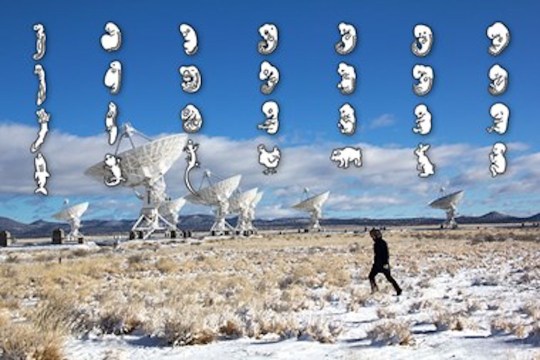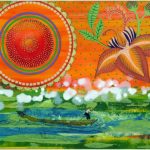Recap | Takeaways from Fiscal Sponsorship’s Grant Writing Workshops
Enhance your grant writing skillset with these workshop takeaways.
This summer NYFA Fiscal Sponsorship hosted a two-part Grant Writing Workshop to help artists build the skills needed for funding their own projects. In Part I: Analyzing Guidelines and Part II: Crafting a Proposal, artists from all disciplines learned resources and strategies for tackling grant writing. Read on for tools to jump-start the grant application process for your project.
Read the Guidelines
After compiling a list of potential grants that could be a good fit for your project, grab a notepad and begin reading the grant guidelines. A thorough understanding of the guidelines gives you invaluable insights into what projects an organization will fund. Be sure to make note of keywords and specific language the funder uses, and take the time to look up unfamiliar words or concepts. This careful analysis is a crucial step for determining if your project aligns with the grant guidelines. Since not all guidelines are easy to understand, try reading them aloud, taking any needed breaks and finding a buddy to read them with you. The notes you gather at this stage can be an indispensable resource for you later.
Research, Research, Research
Deepen your understanding of the funder by learning the organization’s mission statement and programming interests, and investigating the other projects previously funded through the grant program and the amount of funding granted to each. In addition to scoping out an organization’s website and social media platforms, you can also review their 990 tax form on Guidestar.org and utilize the Foundation Center’s Foundation Directory Online, a database that’s available at public libraries around the world, for a funder’s profile. Researching all of these details about a funder allows you to understand their viewpoint, and ultimately helps you determine if your project is aligned with the funder’s goals.
Timing is Everything
Determine the due date of the grant and work backwards to set internal deadlines for yourself. Set dates for completing different parts of the proposal to ensure you do not wait until the last minute. Since you know your work style better than anyone else, develop a timeline customized to your needs. Whether it includes calendar notifications, a checklist sitting above your bed, or logging into a task app, make sure these internal goals are achievable.
Sharing Your Story
When writing your grant proposal, different sections should work together to weave the story of your project. Triple check that the activities eloquently described in your narrative are supported in your budget line items and notes. Similarly the content of the work samples, whether images from past projects, a project schematic, or a letter of support from a community partner, should reference the project activities described in the narrative.
Grant seeking = Relationship Building
Every interaction you have with a funder is part of your relationship with that organization, and completing a grant application is but one conversation within this relationship. If you have a burning question after reading the grant guidelines, reach out to the program manager via phone or email a few weeks before the deadline. Doing so not only introduces a potential funder to your project, it allows you to incorporate their feedback into your proposal while being respectful of the program manager’s time. Remember to keep your conversation concise, and to present yourself just as formally as you would in a job interview. If you apply and do not receive a grant, take the opportunity to ask the funder for feedback, as this can help you improve your next proposal.
– Written by Aimee Vue, Fiscal Sponsorship Intern, Summer 2017, and Madeleine Cutrona, Fiscal Sponsorship Program Officer
This event was co-presented by NYFA Learning, which offers professional development for artists and arts administrators, and by NYFA Fiscal Sponsorship. NYFA Fiscal Sponsorship’s next quarterly no-fee application deadline is September 30.
Sign up for NYFA’s free bi-weekly newsletter to receive updates on future programs, and check out NYFA’s Business of Art Directory to read more articles on this topic and others.
Image: Courtesy of Yoon Cho (Sponsored Project), Inception of the Future, 2014-2015, archival pigment print, performance by artist





